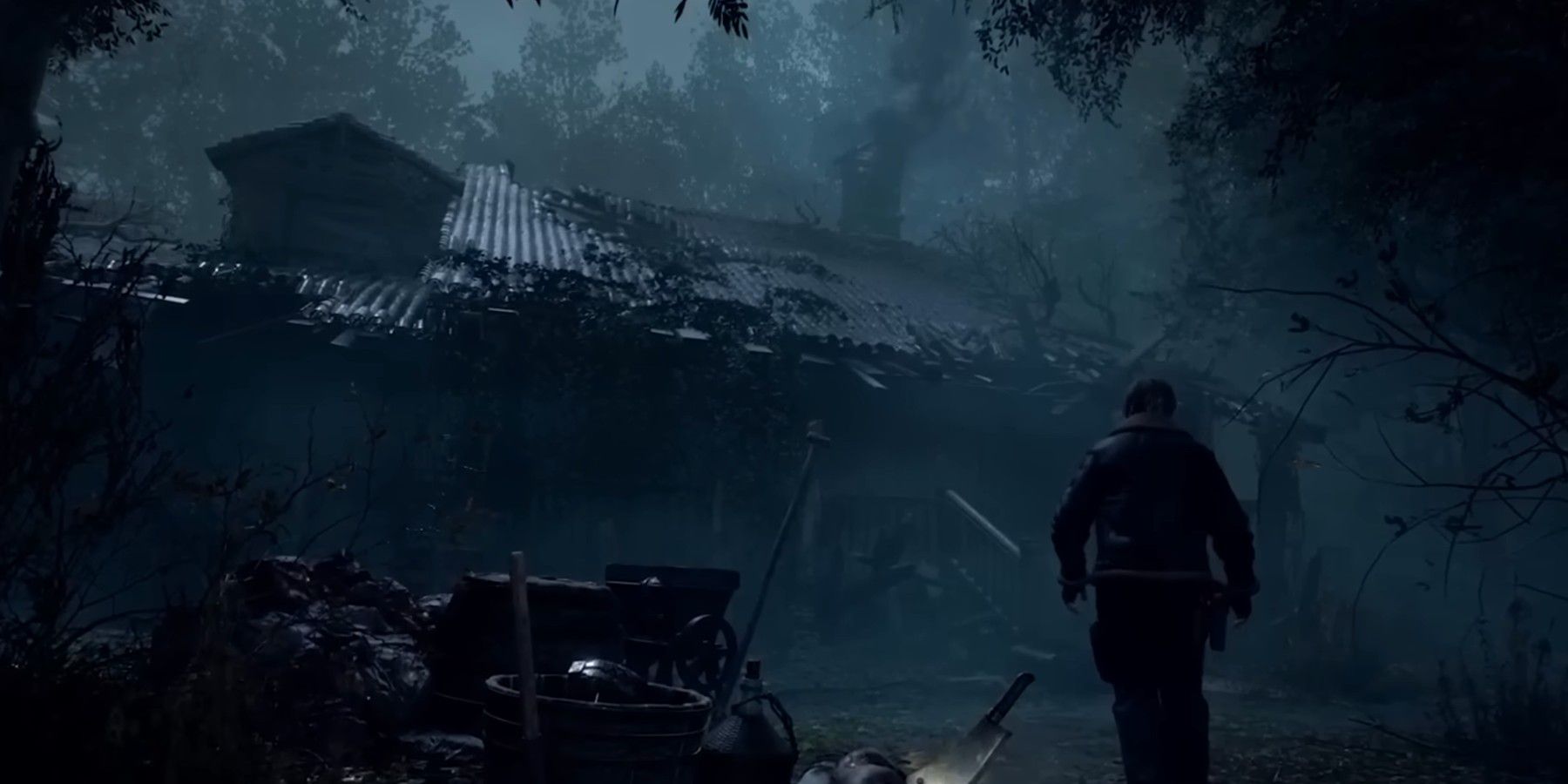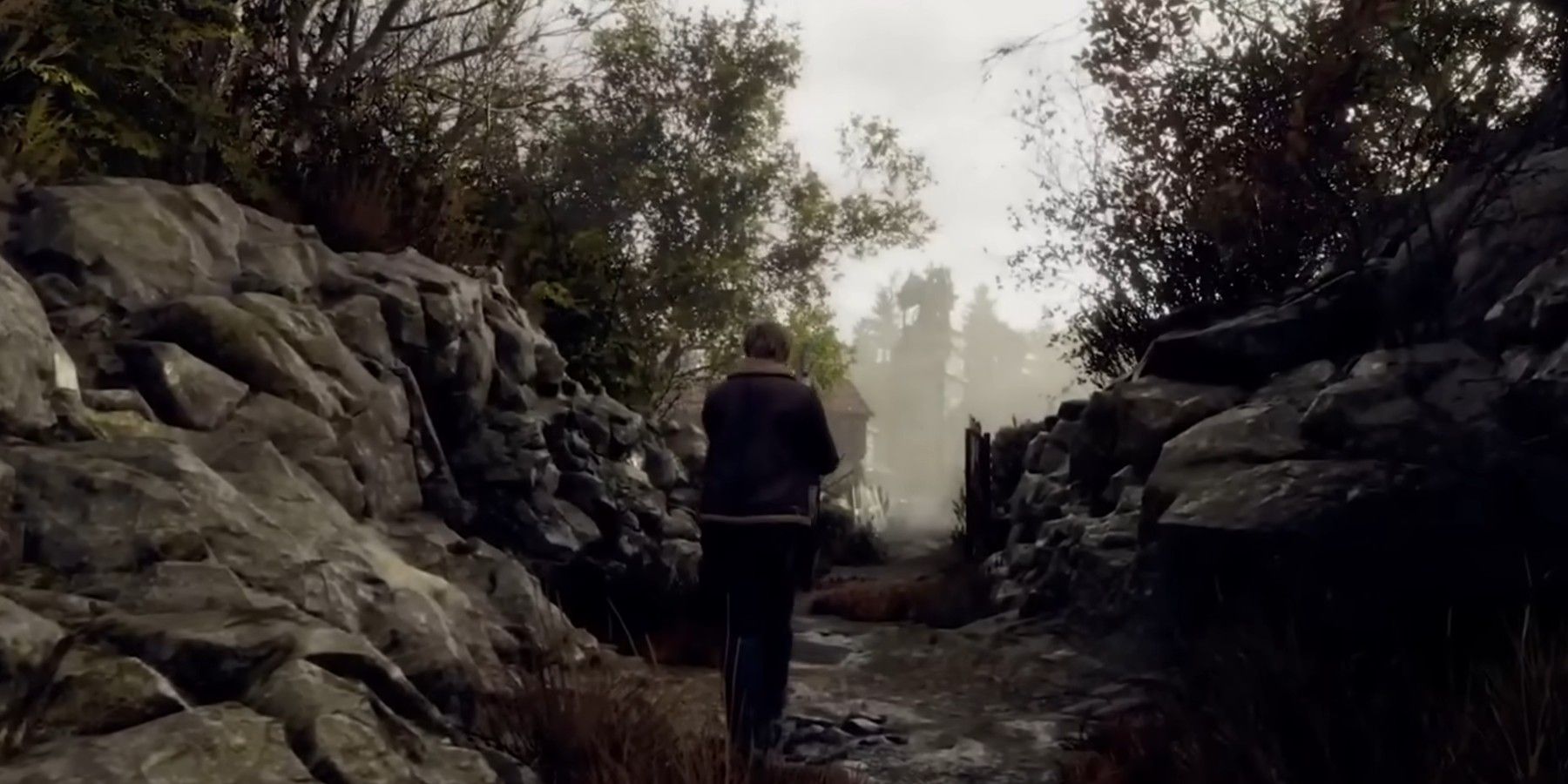The long-awaited remake of Resident Evil 4 is coming out early next year, and Capcom has some difficult decisions to make when it comes to modernizing its masterpiece, as many of its original decisions were deliberate choices that could affect what made the original great if they were to be changed. The series' fourth entry is revered by many, and its influence on the survival horror genre is undeniable. On top of helping to popularize the third-person over-the-shoulder perspective, RE4 was one of several earlier games that allowed players to aim their guns freely and target body parts for different effects.
Resident Evil 4 follows RE2 protagonist Leon Kennedy who must rescue the president's daughter from a deranged cult in Spain. RE4 features a mid-combat movement system dubbed "tank controls," where Leon cannot move while aiming, and incorporates quick time events during cutscenes and boss fights. Players must collect weapons and items while balancing a limited inventory in order to contend with parasite-ridden undead, which now have the ability to wield weapons.
The most difficult challenge of modernizing a potentially outdated sensation like RE4 is that its parts fit perfectly. Though it obviously feels clunky compared to modern entries in the genre, every decision Capcom made was a deliberate, and despite some anachronisms, many of them are central to how the company constructed its ideal survival horror experience. Mechanics that would appear archaic if they appeared in Resident Evil Village all contribute to the classic Resident Evil game's balance of thrilling action and tense horror.
Resident Evil 4 Remake Has To Be Done From The Ground Up
The tank controls are perhaps the best example: they add an element of vulnerability to RE4's action-oriented over-the-shoulder gameplay, making enemy encounters more frightening by limiting mobility and visibility. Given modern movement capabilities in many games, the concept of stopping players in their tracks when they want to attack seems absurd, but if Leon could kill his enemies and outrun them at the same time, RE4 would likely lose its survival horror element and become something closer to a pure action game. This could certainly work in another series, or even in a different context for Resident Evil, but forcing the player to compromise is central to how RE4 found its balance. The opposite case could be made with the quick time events, which were a novel way to incorporate the player into cutscenes, but were unwieldly and haven't aged so well as a larger concept. Capcom could scrap it in favor of amplyfying Resident Evil 4's best features, since even more modern takes on QTEs are often a chore at best, but the cinematic interactive cutscenes would become normal cutscenes, and RE4 could risk losing a bit of its uniqueness and player immersion.
The story's pacing presents a similar issue: the narrative is strong, and interspersing dense story-driven sections between long stretches of exploration/survival horror worked well at the time. However, today's audiences are more accustomed to consistent progression; relatively little happens plot-wise considering the game's length, and its long, unbroken "levels" would be far more polarizing today. Capcom has a lot to contend with: RE4 was built from the ground up with deliberate choices that matched director Shinji Mikami's vision, so in any effort to rebuild, a balance between those more dated elements and modern conventions seems necessary, all the way down to the enemies, which are faster and more inventive than Resident Evil's worst previous monsters, designed to accommodate a different sort of gameplay and perspective. Hopefully, Capcom will find a way to bring Resident Evil 4 to the modern era while preserving the results of its meticulously crafted (though a bit outdated) design choices.
Resident Evil 4 Remake releases on March 24, 2023 for PC, PlayStation 5, and Xbox Series X/S.


